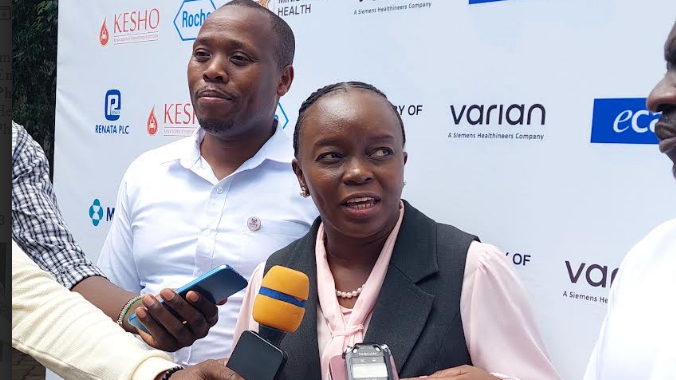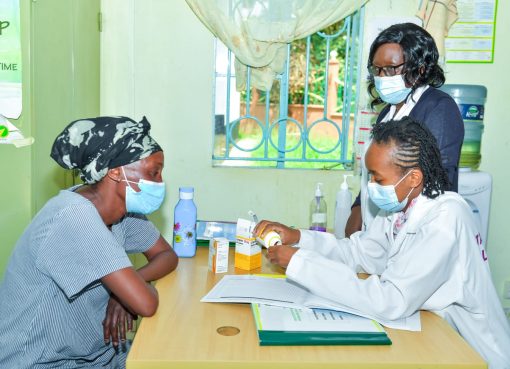The Ministry of Health has rolled out an elaborate plan to decentralise cancer treatment services to give impetus to the fight against the disease.
Health Cabinet Secretary (CS), Dr. Deborah Barasa, said the move also targets to ease pressure on Kenyatta National Hospital (KNH), Moi Teaching and Referral Hospital (MTRH), and Kenyatta University Referral Hospital, which are overwhelmed by a huge number of cancer patients.

To operationalise the programme, the CS said the Ministry has already opened regional centres in Mombasa, Garissa, and Nakuru, with plans to open additional centres in Kisumu, Meru, Nyeri, and Kakamega.
Through the initiative, she added, the Ministry plans to strengthen the capacity of the former Provincial General Hospitals to scale up access to cancer screening, treatment, and care.
“We are on course in the setting up of these centres, and we are hopeful that by mid-next year all the centres we have earmarked shall be operational,” she said.
This, she added, was set to scale up cancer screening and treatment with patients in the regions receiving quality radiotherapy, chemotherapy, cancer medication, and palliative care.
Speaking during the Kenya International Cancer Conference (KICC) in Kisumu, the CS said the programme will run concurrently with the capacity building and training of cancer health professionals to enhance clinical experiences.
The Ministry, she said, would work with partners and local and international training institutions to build capacity for the cancer workforce in the country.
“We are looking to train and build capacity for oncologists, radiologists, oncology nurses, and physicists, among others, so that we can have a good cancer care workforce,” she said.
Cancer, she said, was the third leading cause of death in the country, with about 44,726 cases reported in the country annually.
The CS called for the strengthening of partnerships to build an institutional framework, workforce, and infrastructure to tackle the disease.
She called on the county governments to integrate their data with the National Cancer Registry to ensure an evidence-based approach to tackling the disease.
The cost of treatment, she added, remained a challenge, calling on all Kenyans to register with the Social Health Authority (SHA) to cushion them against the treatment burden.
The Social Health Insurance Fund (SHIF), which has been renamed Taifa Care, she said holds the key to addressing the huge costs involved in treating the disease.
“This is going to ensure affordable and accessible health care with minimal costs involved. We are just 50 days old, and we are gradually improving the programme,” she said.
By Chris Mahandara





